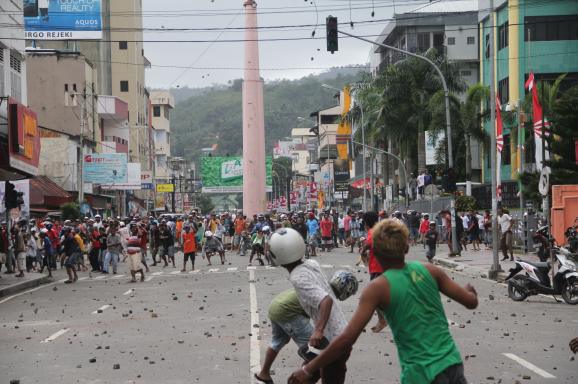A province in Indonesia may pass a bylaw requiring residents to take part in Islamic prayers several times a day. A bylaw is a law or regulation that is made by a local government and applies only to that local area.
A government official in Bengkulu, a province in south Sumatra, has confirmed such a bylaw is being prepared.
The official has told the Indonesian news portal Kompas.com the law mandates prayer five times daily.
The official also says the bylaw is part of the plan of the Mayor of Bengkulu to redesign the city as a religious community.
Kompas.com reports even though the bylaw has not yet been passed, the city has been phasing it in for current city employees. Current regulations also require the Bengkulu city employees to attend public Friday prayers once per month.
Gamawan Fauzi is the home affairs minister of the province. He says the proposed bylaw is illegal and he has been working to stop the proposed measure from becoming law.
“If it is only a call advising people to go to the mosque to pray, or calling on Christians to go to church, it’s fine,” he told the Jakarta Globe. “But it’s not fine if they issue a bylaw which carries authority … religious affairs are under the authority of the central government.”
Currently there is no proposed punishment for violators.
A Jakarta Globe report cites a severe example of the imposition of strict Islamic law. 19 employees were fired in Indonesia’s western district of Riau because they missed congregational prayers.
Many Indonesians are upset over the ruling. “This is clearly a strange ruling, because a matter for God has become a matter for the district head,” Djohermanyah Djohan, the Home Affairs Ministry’s director general told the Jakarta Globe.
Officials made the decision based on a religious program that requires all male Muslim public servants to join congregational prayers at the main mosque at the Islamic Center in the capital of the district.
A study by the Pew Research Center on Religion and Public Life indicates that Indonesia is the country with the world’s largest Muslim population, estimated at around 205 million. The study says roughly 88 percent of the population of Indonesia is Muslim, and the nation is home to about 13 percent of the world’s Muslims.
This is not the first case in the country in which civil servants have faced forced prayers.
On August 26th of last year, a new rule went into effect in the Indonesian province of East Java. AsiaNews reported that all Muslim public servants, both men and women, were required to recite an Islamic prayer before starting the workday.
A group of district officials filed a formal complaint against the rule, stating that “praying is personal in nature and no one has the authority to impose prayer.”
One member of the regional assembly went on to say that “recitation of the prayer gives no guarantee that public officials will carry out their jobs better.” He calls the new regulation an abuse of power by higher-ranking government officials as well as interference in the lives of citizens and workers.
Although Indonesia has the highest population of Muslims in the world, the nation does include personal freedoms among its basic constitutional principles.
Indonesia has experienced more violence and abusive behavior against minority religions, including both Christians and moderate Muslims.
Aceh is the only province in the county that enforces Islamic law, but human rights officials note the influence of the Muslim religion is becoming more radical and extreme in the lives of citizens in many other parts of the country.
The Islamic Defenders Front and the Indonesian Ulema Council are leading the campaign to impose radical Islam. The groups say they are motivated by the Shari’a, or strict Islamic law. They have tried to impose their views in several areas, including a ban on alcohol and strict laws on sexual morality.
AsiaNews reports from December 16th of 2013, through January of this year, at least five Christian churches in the province of Jambi, Sumatra, have been forced to halt construction work due to a blockade imposed by local officials, under pressure from Islamic extremist groups.
No comments yet




